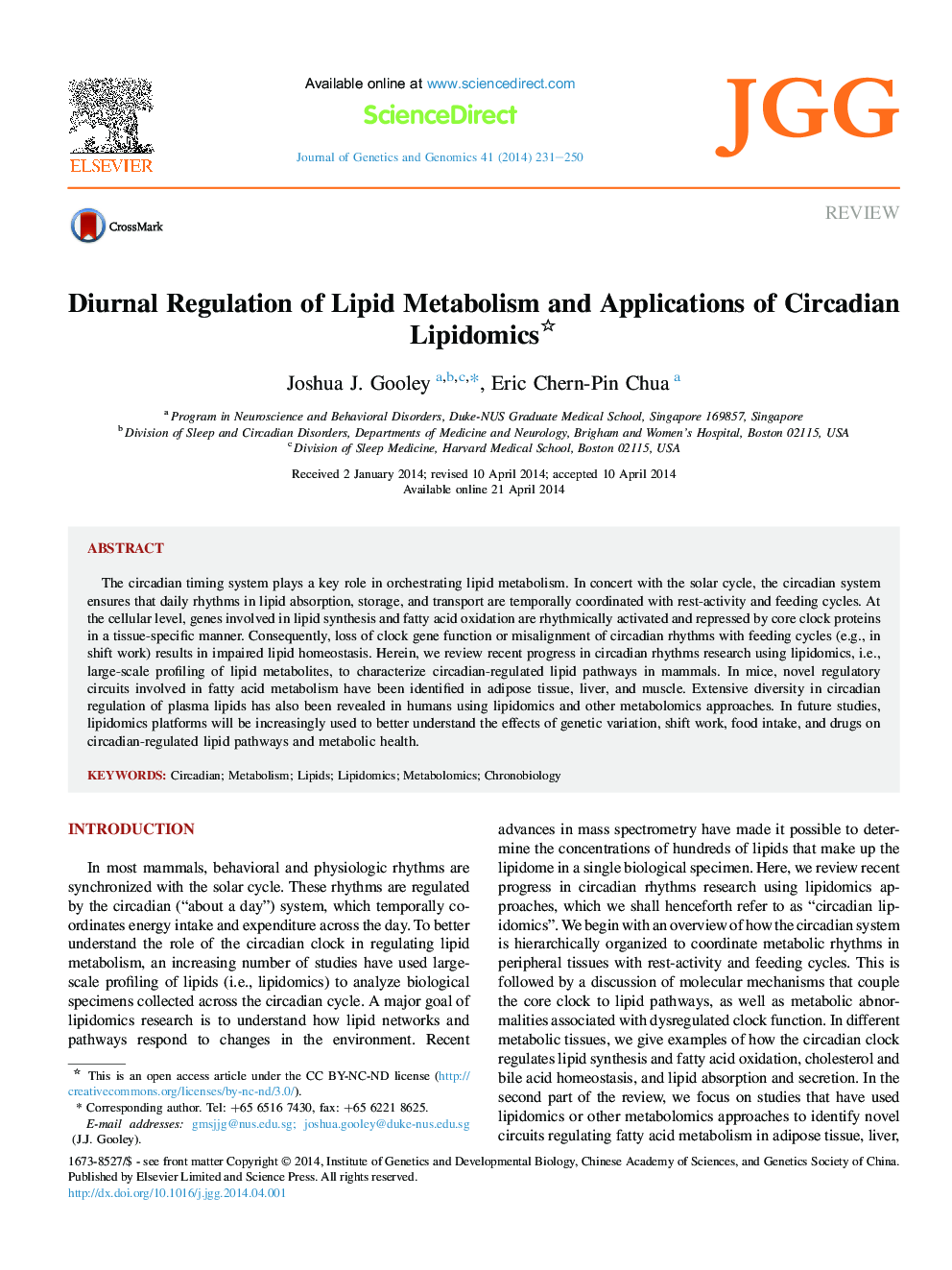| Article ID | Journal | Published Year | Pages | File Type |
|---|---|---|---|---|
| 5894072 | Journal of Genetics and Genomics | 2014 | 20 Pages |
The circadian timing system plays a key role in orchestrating lipid metabolism. In concert with the solar cycle, the circadian system ensures that daily rhythms in lipid absorption, storage, and transport are temporally coordinated with rest-activity and feeding cycles. At the cellular level, genes involved in lipid synthesis and fatty acid oxidation are rhythmically activated and repressed by core clock proteins in a tissue-specific manner. Consequently, loss of clock gene function or misalignment of circadian rhythms with feeding cycles (e.g., in shift work) results in impaired lipid homeostasis. Herein, we review recent progress in circadian rhythms research using lipidomics, i.e., large-scale profiling of lipid metabolites, to characterize circadian-regulated lipid pathways in mammals. In mice, novel regulatory circuits involved in fatty acid metabolism have been identified in adipose tissue, liver, and muscle. Extensive diversity in circadian regulation of plasma lipids has also been revealed in humans using lipidomics and other metabolomics approaches. In future studies, lipidomics platforms will be increasingly used to better understand the effects of genetic variation, shift work, food intake, and drugs on circadian-regulated lipid pathways and metabolic health.
